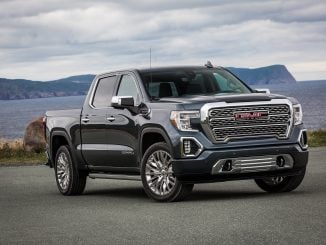SAN DIEGO — BMW has long offered electrified vehicles.
The German marque was one of the first to sell a full EV with the odd i3, and it has offered plug-in hybrids for years across its sedan and SUV lines.
I’m sure there are Tesla fans who will claim that BMW is somehow “late” to the EV arena, but given that mainstream automakers have only just begun offering full electric cars in any volume, I’d say Bayerische Motoren Werke is right on time.
BMW has a pair of new EVs on offer, and I’ve driven both. I drove the BMW iX SUV a month or two ago and found it to be an impressive and somewhat bonkers SUV that debuted an almost entirely new interior design language from BMW. It has wood, beautiful crystal controls, and a vast widescreen that dominates the floating dash.
The BMW i4, however, is a bit more traditional. Where it’s immediately apparent that the iX is something new, the i4 looks nearly identical to a standard BMW 4 Series Gran Coupe. The differences are subtle and not readily apparent. Of course, there’s an i4 badge on the back, and the BMW logos are encircled in blue (the official accent color of BMW EVs), but that’s it.
It’s the same story inside. It looks like a standard BMW 4 Series, down to the console, gearshift, and all the buttons. Again, the only significant differences are the blue accents on the gear shift and the start/stop button. If you want to fly under the radar with your electric-ness, the i4 is for you.
The i4 is also for you if you’re looking for the Ultimate Driving Machine. The i4 is my favorite BMW not named iX, and I’m not the biggest BMW fan. I think they’re often too focused on performance, which is terrific when you’re on track, but in everyday life — where the vast majority of BMWs are going to spend the vast majority of their time — you end up with something that’s too stiff and harsh.
I found the i4 to have a nicer balance, perhaps due to the added weight of the battery necessitating a tamer suspension. Still, it sports a 50/50 weight distribution and, in the i4 M50 trim, an adaptive M suspension, anti-roll bars, an additional strut tower brace up front, and nicer brakes and tires. BMW says the i4 M50’s center of gravity is 1.3 inches lower than a BMW 3 Series, too.
Reduced range is the price you pay for increased performance.
The drive is fantastic, with ample power available with a twitch of your right foot. The M sport steering and adaptive suspension deliver a terrific combination of performance and comfort, perfect for zipping through SoCal traffic or ripping up a desert canyon.
A Sport Boost function temporarily pushes the max output of the i4 M50’s two motors by 67 hp to 536 hp and torque by 48 to 586 lb-ft for ten seconds. The boost function is related to charge and temperature status in the car’s various propulsion systems and can be activated several times in succession if conditions allow.
Cleverly, energy recuperation is adjusted based on data from the nav and the driver assist systems. The car will boost regen if you’re approaching a turn, traffic light, or a road with a lower speed limit.
The i4 can fast charge at up to 200 kWh, which BMW says can increase range by up to 90 miles in 10 minutes. Charging speed calculations are far more complicated than I can dive into here, but there is plentiful information on EV specialist websites if you need more data.
Range varies depending on trim and which wheels you opt for. The single-motor i4 eDrive40 with 18-inch wheels gets an EPA-estimated range of 301 miles, while the i4 M50 with 20-inch wheels and sticky, performance tires rated just 227 miles. The reduced range is the price you pay for increased performance.
Speaking of price, the i4 M50 starts at $65,900, and my tester included a litany of options and totaled out to $76,670. Notably, the i4 is not eligible for the newly revamped federal EV tax credit as it is manufactured outside the United States and exceeds the $50,000 price cap for electric sedans.
I’m not sure buyers of a $75,000 sports sedan particularly needed a $7,500 federal tax credit, but it’s still disappointing for potential i4 owners looking forward to a nice rebate come April. The i4 and iX make a compelling first pair of BMW EVs.



